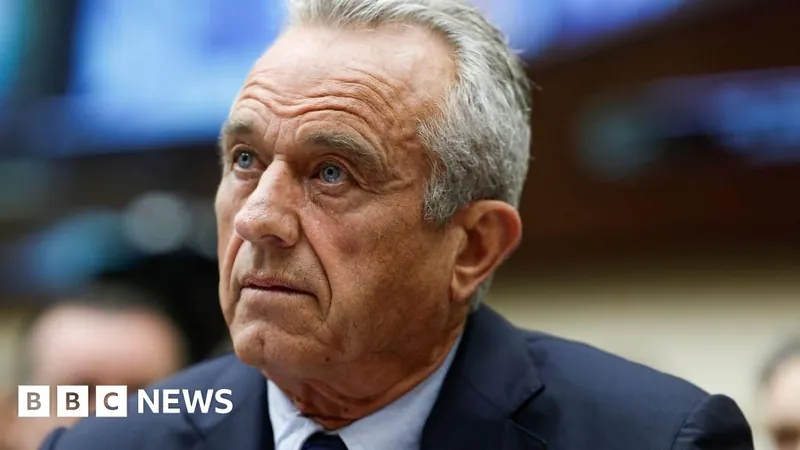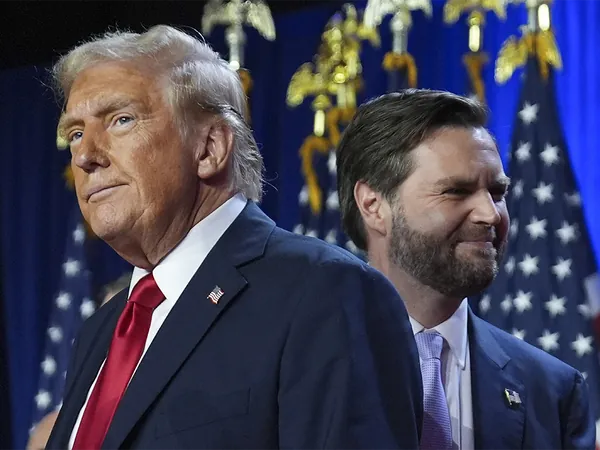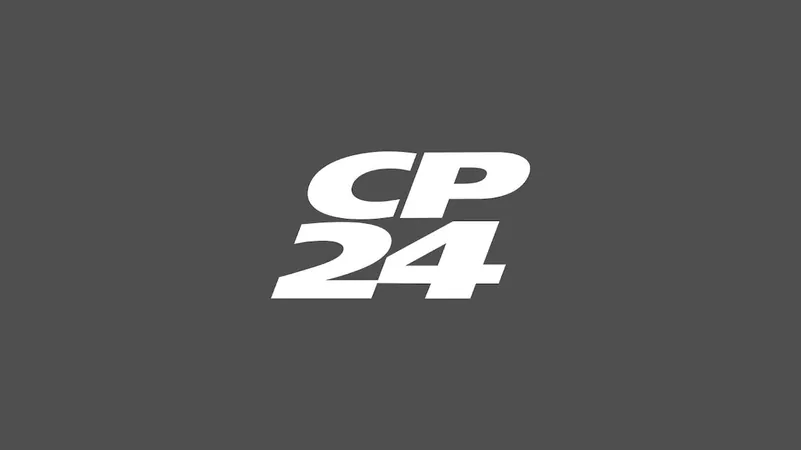
Health Stocks Plunge as Trump Appoints RFK Jr. as Health Secretary: What It Means for the Sector
2024-11-15
Author: Emily
Health Stocks Plunge as Trump Appoints RFK Jr. as Health Secretary
In a surprising turn of events, shares of healthcare and vaccine companies experienced significant declines on Friday following Donald Trump's announcement of his appointment of Robert F. Kennedy Jr. as the U.S. Health Secretary. Investors reacted swiftly, fearing that Kennedy’s controversial stance against vaccines and his commitment to challenging “Big Pharma” could disrupt the industry landscape.
Kennedy, a prominent vaccine skeptic, has previously vowed to take a hardline approach against pharmaceutical giants if he is confirmed in the role. This appointment raises serious concerns within the sector, triggering a notable sell-off. In the U.S., shares of Pfizer plummeted by over 4%, while Moderna witnessed an even sharper decline of approximately 7%. Across the Atlantic, UK-listed pharmaceutical giants AstraZeneca and GlaxoSmithKline (GSK) also faced losses, both dropping by more than 3%.
Investment experts, including Russ Mould from AJ Bell, expressed that Kennedy’s selection has "spooked" shareholders, primarily due to uncertainty regarding how aggressively he will act against the healthcare sector. Mould articulated that, "The impact on the sector is hard to judge fully at this stage but, at the very least, it will cause a good deal of uncertainty."
The role of the U.S. health secretary encompasses considerable authority, overseeing crucial aspects such as food safety, medical research, and welfare programs. Critics of Kennedy, including numerous public health officials, have attacked his history of disseminating misinformation related to health. Despite this, he has managed to cultivate a following by addressing the growing skepticism about the influence of pharmaceutical and food corporations over regulatory bodies.
Before his support of Trump, Kennedy had unsuccessfully campaigned for the presidency as a third-party candidate. His platform included strict regulations on food additives and dyes, the removal of ultra-processed foods from school menus, and demanding greater transparency from drug manufacturers regarding vaccines.
Should Kennedy's nomination receive Senate approval, his policies could signify a dramatic shift in the U.S. health regulatory approach, diverging from both the Biden administration's strategies and Trump's earlier term, which emphasized funding for COVID-19 vaccine development without heavy-handed regulation.
Additionally, Trump previously alarmed the pharmaceutical industry with initiatives aimed at reducing drug prices, such as facilitating the importation of medicines from Canada. Paul Chaplin, CEO of the Danish pharmaceutical company Bavarian Nordic, which has seen its shares sink over 15%, noted that while uncertainty is causing immediate price declines, Kennedy's leadership could potentially benefit certain segments of the healthcare market, given that Trump’s previous administration inadvertently bolstered Bavarian Nordic's mpox and smallpox vaccine interests.
In Europe, the ripple effects were felt as well, with Danish-listed shares of Novo Nordisk, renowned for its diabetes medications like Ozempic, falling more than 5%, while French pharmaceutical leader Sanofi, which specializes in flu vaccines, experienced a drop of over 3% in Paris.
As investors grapple with the implications of this unexpected appointment, the healthcare sector faces a period of uncertainty that could reshape the future of medical regulation and pharmaceutical oversight in the United States.









 Brasil (PT)
Brasil (PT)
 Canada (EN)
Canada (EN)
 Chile (ES)
Chile (ES)
 España (ES)
España (ES)
 France (FR)
France (FR)
 Hong Kong (EN)
Hong Kong (EN)
 Italia (IT)
Italia (IT)
 日本 (JA)
日本 (JA)
 Magyarország (HU)
Magyarország (HU)
 Norge (NO)
Norge (NO)
 Polska (PL)
Polska (PL)
 Schweiz (DE)
Schweiz (DE)
 Singapore (EN)
Singapore (EN)
 Sverige (SV)
Sverige (SV)
 Suomi (FI)
Suomi (FI)
 Türkiye (TR)
Türkiye (TR)